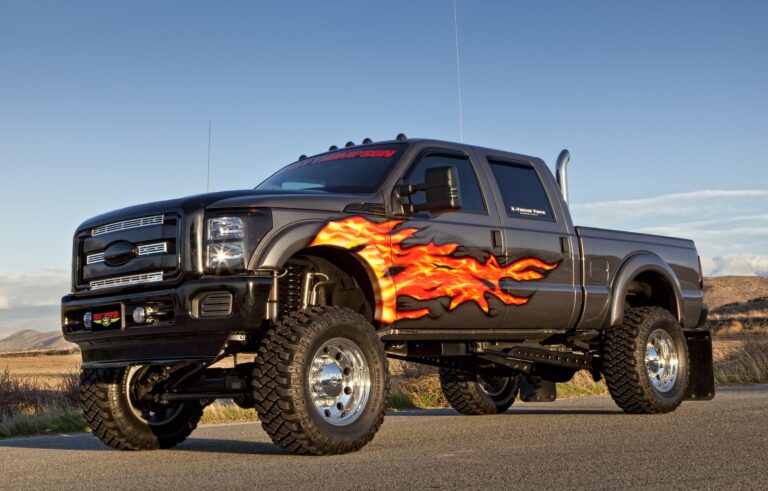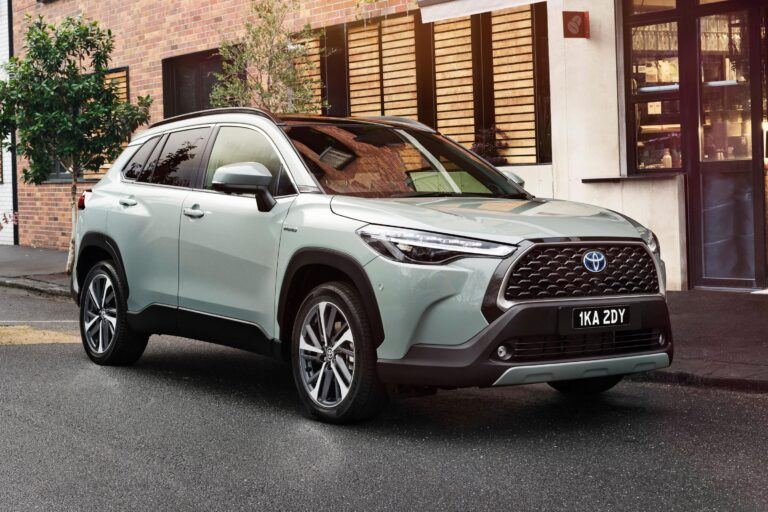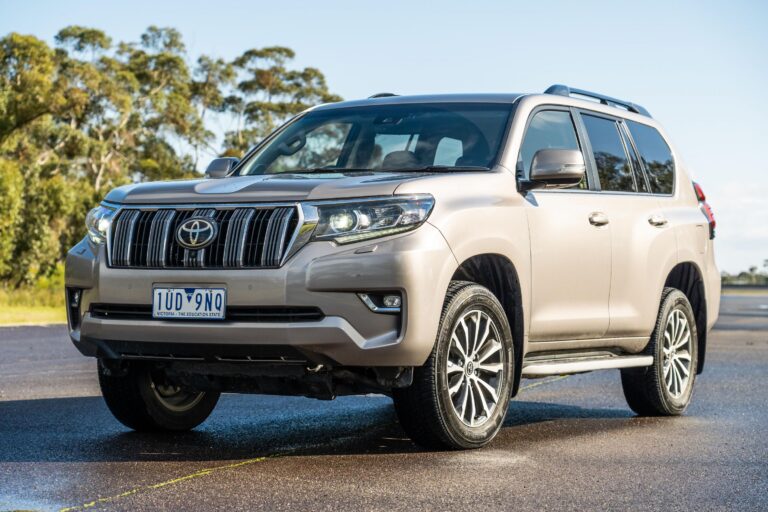4-Wheel Steering Trucks For Sale: Your Comprehensive Guide to Enhanced Agility and Capability
4-Wheel Steering Trucks For Sale: Your Comprehensive Guide to Enhanced Agility and Capability cars.truckstrend.com
In the vast landscape of pickup trucks, a feature that once seemed like a futuristic novelty is making a significant resurgence: 4-wheel steering (4WS). For decades, trucks have been synonymous with raw power and rugged capability, but often at the expense of maneuverability. Enter 4-wheel steering, a technology designed to dramatically improve a truck’s agility, stability, and overall driving experience. If you’re in the market for a truck that can navigate tight city streets, conquer challenging off-road trails, or simply make parking a behemoth less of a headache, a 4-wheel steering truck might be precisely what you need.
This comprehensive guide will delve into everything you need to know about 4-wheel steering trucks for sale, from their underlying mechanics and unparalleled benefits to crucial buying considerations and where to find these remarkable vehicles.
4-Wheel Steering Trucks For Sale: Your Comprehensive Guide to Enhanced Agility and Capability
Understanding 4-Wheel Steering in Trucks
At its core, 4-wheel steering allows a vehicle’s rear wheels to steer in addition to the front wheels. Unlike traditional trucks where only the front wheels turn, 4WS systems provide a degree of independent steering for the rear axle. This seemingly simple addition unlocks a world of dynamic improvements.
How It Works:
Modern 4WS systems are typically electronically controlled, adapting the rear wheel steering angle based on vehicle speed, steering input, and even driving mode.
- Low Speeds (Enhanced Maneuverability): At slower speeds, such as during parking or navigating tight turns, the rear wheels steer in the opposite direction to the front wheels. This effectively shortens the vehicle’s turning radius, making a full-size truck feel like a much smaller vehicle. Imagine effortlessly parallel parking a heavy-duty pickup!
- High Speeds (Improved Stability): Conversely, at higher speeds, the rear wheels steer in the same direction as the front wheels, albeit by a smaller degree. This "crabbing" motion enhances stability during lane changes, improves handling on winding roads, and can even counteract the effects of crosswinds, making highway driving safer and more comfortable, especially when towing.

Types of 4WS Systems:
While the basic principle remains, systems vary. Some are purely mechanical, while others, like the sophisticated "CrabWalk" feature found in modern electric trucks, are fully electronic, offering precise control and multiple steering modes.
Why Choose a 4-Wheel Steering Truck? The Benefits Unpacked
The advantages of 4-wheel steering extend far beyond simple turning. For truck owners, these benefits translate directly into practical utility and an improved driving experience.
1. Unmatched Maneuverability

This is arguably the most significant advantage. A reduced turning radius means:
- Easier Parking: Navigating crowded parking lots and executing parallel parking maneuvers becomes significantly simpler.
- Urban Agility: For those who use their truck in city environments, 4WS transforms a cumbersome vehicle into one that can weave through traffic and make tight U-turns with surprising ease.
- Worksite Navigation: On construction sites or in agricultural settings, where space is often limited, 4WS allows for quicker positioning and less backing up.

2. Enhanced Towing and Hauling Stability
Towing heavy loads can be demanding, but 4WS offers a distinct advantage:
- Reduced Trailer Sway: At highway speeds, the synchronized steering of front and rear wheels helps to counteract trailer sway, providing a more stable and controlled towing experience.
- Improved Lane Changes: Safer and smoother lane changes are possible, even with a large trailer in tow, due to the increased vehicle stability.
- Precise Trailer Backing: While not directly controlling the trailer, the enhanced maneuverability of the truck itself can make fine adjustments easier when backing up.
3. Superior Off-Road Capability
For adventure seekers and off-road enthusiasts, 4WS opens up new possibilities:
- Tight Trail Navigation: On narrow trails with sharp turns, the reduced turning radius helps avoid multi-point turns and potential damage.
- Obstacle Avoidance: Features like "CrabWalk" (where all four wheels steer in the same direction at an angle) allow the truck to move diagonally, ideal for bypassing obstacles or positioning the vehicle precisely on challenging terrain.
- Increased Articulation: In some systems, 4WS can subtly aid in maintaining traction by allowing the vehicle to articulate more effectively over uneven surfaces.
4. Improved Highway Driving Dynamics
Even without a trailer or off-road conditions, 4WS contributes to a more refined driving experience:
- Better Handling: The vehicle feels more responsive and planted, especially during high-speed cornering.
- Crosswind Resistance: The ability of the rear wheels to subtly adjust helps the truck maintain its line in strong crosswinds, reducing driver fatigue.
Key Considerations When Buying a 4-Wheel Steering Truck
While the benefits are compelling, potential buyers should be aware of several important factors before investing in a 4WS truck.
1. Cost Implications
- Higher Purchase Price: Trucks equipped with 4WS typically command a higher price tag, both new and used, due to the added technology and complexity. They are often found on higher trim levels or as premium options.
- Maintenance Costs: The 4WS system involves additional components (actuators, sensors, control modules, steering linkages for the rear axle) that can require specialized maintenance or repair. While generally reliable, if a component fails, the repair can be more expensive than on a traditional 2-wheel steer truck.
2. Availability and Model Specificity
4-wheel steering is not a standard feature on most trucks. Historically, GM’s Quadrasteer system (early 2000s) was a notable, albeit short-lived, offering. Today, 4WS is primarily found on:
- Premium Trims: Such as the GMC Sierra AT4X and Denali Ultimate.
- Electric Trucks: The GMC Hummer EV is a prime example, utilizing 4WS for its signature "CrabWalk" mode.
- Specialty Vehicles: Some niche or military-grade trucks might incorporate it.
Finding a specific 4WS model might require more diligent searching.
3. Driving Experience Adaptation
While beneficial, the feel of a 4WS truck can be different. At low speeds, the enhanced turning can feel unusual initially, almost like the truck is pivoting. Drivers quickly adapt, but a thorough test drive is essential to ensure comfort with the system’s feel.
4. Complexity and Potential for Issues
More complex systems inherently have more points of failure. While modern electronic systems are robust, any issue with the 4WS system could lead to a dashboard warning light, reduced functionality, or even a limp-home mode. Always ensure a pre-purchase inspection specifically checks the 4WS system’s health.
Popular 4-Wheel Steering Truck Models (Past & Present)
Identifying 4-wheel steering trucks for sale requires knowing which models offered this technology.
Historical Example: GM Quadrasteer (2002-2005)
Perhaps the most well-known mass-market attempt at 4WS in trucks was General Motors’ Quadrasteer system, available on select Chevrolet Silverado and GMC Sierra 1500HD, 2500HD, and some Suburban/Yukon XL models.
- Pros: Significantly reduced turning radius (by up to 21%), enhanced trailering stability.
- Cons: High initial cost (around $5,000 option), bulkier rear axle, and perceived complexity led to low adoption rates, resulting in its discontinuation.
Today, used Quadrasteer trucks can be found, offering the benefits of 4WS at a more accessible price point, but potential buyers should factor in the age of the system and availability of parts.
Modern Implementations: Premium and Electric Trucks
In recent years, 4WS has seen a resurgence, particularly in high-end and electric trucks, leveraging advanced electronic controls:
- GMC Sierra AT4X / Denali Ultimate: Certain high-trim GMC Sierra models (especially the HD variants) offer a 4-wheel steering system that significantly improves maneuverability for large trucks, making them surprisingly agile for their size.
- GMC Hummer EV Pickup: This is perhaps the most prominent example of modern 4WS, featuring the revolutionary "CrabWalk" mode, which allows the vehicle to move diagonally, and 4-wheel steering for an incredibly tight turning circle, unmatched by other full-size trucks.
- Ram (Limited Availability): While less common, some specialized or concept Ram trucks have explored 4WS technology, particularly in high-performance or off-road concepts.
Where to Find 4-Wheel Steering Trucks For Sale & Buying Tips
Finding a 4-wheel steering truck for sale might require a more targeted search than a conventional truck.
Where to Look:
- Dealerships (New & Used): Authorized dealerships for brands like GMC are the primary source for new 4WS trucks (Hummer EV, Sierra AT4X/Denali Ultimate). Used car dealerships and independent truck specialists may have older Quadrasteer models.
- Online Marketplaces: Websites like AutoTrader, Cars.com, CarGurus, and eBay Motors allow you to filter searches by specific features or keywords (e.g., "4-wheel steering," "Quadrasteer," "CrabWalk").
- Specialty Forums & Communities: Owners’ forums for specific models (e.g., GM truck forums with Quadrasteer sections) can be excellent places to find private sales or get advice.
- Auctions: Public or private auto auctions occasionally feature unique or specialty vehicles, including older 4WS trucks.
Practical Buying Tips:
- Research Specific Models & Years: Know exactly which years and trims offered 4WS for the model you’re interested in (e.g., 2002-2005 for Quadrasteer Silverado/Sierra).
- Thorough Pre-Purchase Inspection (PPI): This is crucial. Have an independent mechanic, ideally one familiar with 4WS systems, inspect the entire vehicle, paying special attention to the rear steering components, actuators, sensors, and any associated computer systems.
- Test Drive Extensively: Drive the truck in various conditions – at low speeds (parking maneuvers, U-turns) to experience the tight turning radius, and at highway speeds to assess stability. Listen for any unusual noises or feel for any vibrations from the rear steering.
- Check Service Records: Look for documentation of past maintenance or repairs related to the 4WS system.
- Understand Maintenance & Parts Availability: Especially for older Quadrasteer models, inquire about the availability of replacement parts and the cost of potential repairs for the 4WS system.
Estimated Price Guide for 4-Wheel Steering Trucks For Sale
Prices for 4-wheel steering trucks vary significantly based on model, year, condition, mileage, and trim level. The table below provides a general estimate, but actual prices will fluctuate widely.
| Model / Year Range | Condition | Estimated Price Range (USD) | Notes |
|---|---|---|---|
| GM Silverado/Sierra (Quadrasteer) 2002-2005 |
Used | $8,000 – $25,000+ | Price highly dependent on condition, mileage, 2WD/4WD, and specific trim. Older system, parts rarer. |
| GMC Sierra 1500 AT4X / Denali Ultimate Newer Models (2022+) |
New | $70,000 – $95,000+ | Premium trims; 4WS often part of advanced tech packages. |
| GMC Hummer EV Pickup Newer Models (2022+) |
New | $90,000 – $120,000+ | Top-tier electric truck; 4WS (CrabWalk) is a signature feature. |
| Other Specialty/Modified Trucks | Varies | Highly Variable | Rare, often custom or niche applications. Pricing depends on build and origin. |
Note: These are estimated ranges. Always conduct thorough research and obtain a professional appraisal for specific vehicles.
Frequently Asked Questions (FAQ) About 4-Wheel Steering Trucks
Q1: Is 4-wheel steering the same as all-wheel drive (AWD) or 4×4?
No. 4-wheel steering (4WS) refers to the ability of all four wheels to steer. All-wheel drive (AWD) and 4×4 (four-wheel drive) refer to the vehicle’s drivetrain, meaning power is sent to all four wheels for traction. A truck can have 4WS and be 2WD, 4WD, or AWD.
Q2: Is 4-wheel steering reliable?
Modern 4WS systems, especially those electronically controlled, are generally reliable. However, like any complex system, components can wear out or fail. Older mechanical systems, like Quadrasteer, might have unique maintenance considerations due to their age and discontinued support.
Q3: Are 4WS trucks good for towing?
Yes, very much so. 4WS significantly enhances stability during highway towing, reducing trailer sway and making lane changes smoother and safer. This is one of its major benefits for truck owners.
Q4: Can I add 4-wheel steering to my existing truck?
Generally, no. 4-wheel steering is a factory-installed feature integrated into the truck’s chassis, suspension, and electronic control systems. Aftermarket conversions are extremely rare, complex, and costly, often requiring significant structural modifications.
Q5: What are the common problems or disadvantages of 4WS?
The main disadvantages include higher initial cost, increased complexity which can lead to more expensive repairs if something goes wrong, and potentially heavier overall vehicle weight due to the extra components. For older systems, parts availability can be a concern.
Q6: Is a 4WS truck worth the extra cost?
For many, the benefits of enhanced maneuverability, improved towing stability, and superior off-road capability outweigh the higher cost and complexity. It largely depends on your primary use case for the truck and whether these specific advantages align with your needs. If you frequently navigate tight spaces or tow heavy loads, it can be a game-changer.
Conclusion: The Agile Powerhouse
4-wheel steering trucks represent a unique blend of traditional truck utility with advanced maneuverability and stability. Whether you’re a contractor needing to navigate a crowded job site, an RVer pulling a large fifth wheel, or an off-road enthusiast tackling technical trails, the advantages of 4WS are undeniable. While they might come with a higher price tag and a bit more complexity, the enhanced driving experience and practical benefits often justify the investment.
As this technology continues to evolve, especially in the realm of electric vehicles, 4-wheel steering trucks are poised to redefine what’s possible for full-size pickups, offering an unparalleled combination of power and agility. When searching for your next truck, consider the remarkable capabilities of a 4-wheel steering model – it might just be the versatile workhorse you’ve been looking for.






